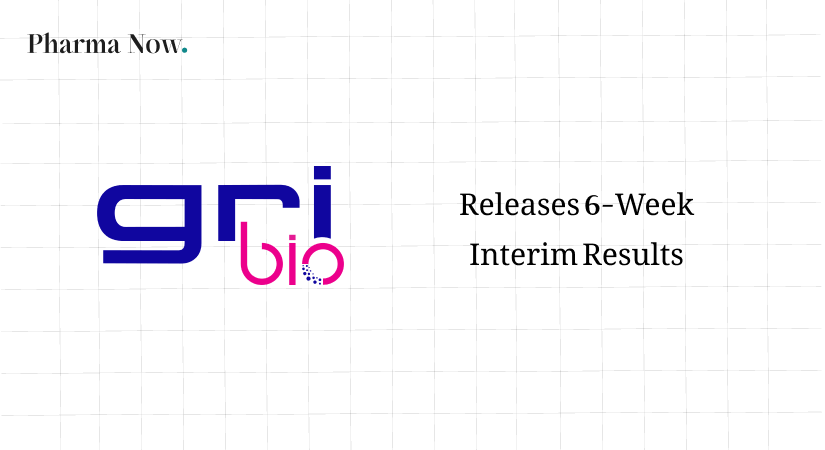GRI Bio Releases 6-Week Interim Lung Function Results From Ongoing Phase 2a Clinical Study In Idiopathic Pulmonary Fibrosis (IPF)
GRI Bio’s GRI-0621 shows no FVC decline and anti-fibrotic biomarker signals in Phase 2a IPF study six-week data.
Breaking News
Sep 12, 2025
Simantini Singh Deo

GRI Bio, Inc., a biotechnology company developing Natural Killer T (NKT) cell modulators for inflammatory, fibrotic, and autoimmune diseases, has reported interim six-week lung function results from its ongoing Phase 2a clinical study of GRI-0621 for the treatment of Idiopathic Pulmonary Fibrosis (IPF). The second interim analysis assessed lung function in the first 24 subjects at six weeks. Patients treated with GRI-0621 showed no worsening of forced vital capacity (FVC) compared to baseline, supporting earlier positive interim findings from serum biomarker data.
Biomarker changes observed in GRI-0621-treated patients suggest an anti-fibrotic effect, with reductions in markers of fibrosis formation and increases in markers of fibrosis resolution, including greater degradation of crosslinked type III collagen found in fibrotic tissue. No safety concerns were identified by the Independent Data Monitoring Committee (IDMC) after reviewing data from the first 12 subjects at two weeks and the first 24 subjects at six weeks. The IDMC recommended continuing the study as planned.
Toby Maher, MD, PhD, Professor of Clinical Medicine at the Keck School of Medicine, USC Los Angeles, commented that the absence of FVC decline over six weeks in GRI-0621-treated patients is encouraging, although expected given the small sample size and short duration. He noted the importance of upcoming longer-term data, particularly as biomarker results suggest a net anti-fibrotic effect. Marc Hertz, PhD, Chief Executive Officer of GRI Bio, added that the six-week FVC data reinforce the earlier findings on serum biomarkers related to collagen remodeling. He confirmed that topline data from the study are expected later in the third quarter of 2025.
The Phase 2a trial is a randomized, double-blind, multi-center, placebo-controlled, parallel-design, two-arm study enrolling approximately 35 patients with IPF. Participants were randomized in a 2:1 ratio to receive either 4.5 mg of GRI-0621 or a placebo, administered orally once daily for 12 weeks. A sub-study is also being conducted with up to 12 eligible participants to analyze NKT cell activity and numbers in bronchoalveolar lavage (BAL) fluid.
The primary objective of the study is to evaluate the safety and tolerability of GRI-0621 using clinical labs, vital signs, and adverse event reporting after 12 weeks of treatment. Secondary objectives include changes in serum biomarkers at weeks six and 12, pharmacokinetics (PK) assessment at week 12, and evaluation of pharmacodynamic activity through inhibition of iNKT cell activation in blood at six and 12 weeks, as well as in BAL fluid at 12 weeks. Exploratory endpoints will assess pulmonary function, flow cytometry, and differential gene expression over the course of treatment.
Previous interim safety analyses at two and six weeks confirmed GRI-0621 to be safe and well-tolerated, with biomarker changes suggesting a reduction in collagen synthesis and an increase in collagen breakdown. The IDMC recommended continuing the trial after each analysis. The interim findings also showed that GRI-0621’s receptor selectivity aligns with toxicity profiles from earlier studies of oral tazarotene, involving more than 1,700 patients treated for up to 52 weeks. Topline results from this Phase 2a biomarker study are expected in the third quarter of 2025, with additional flow cytometry and gene expression data anticipated in the coming months.
